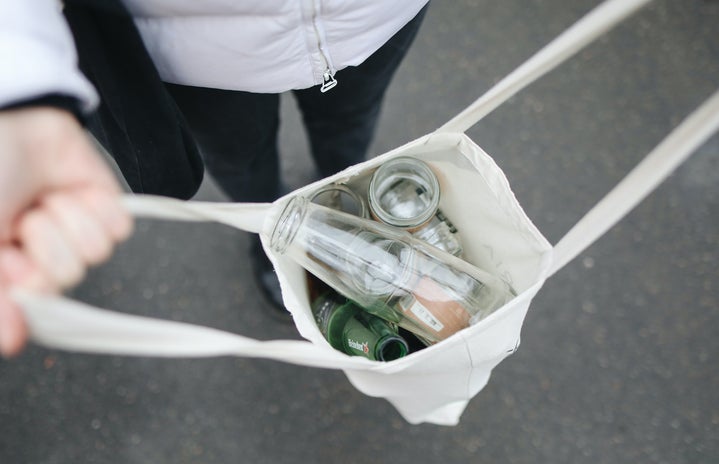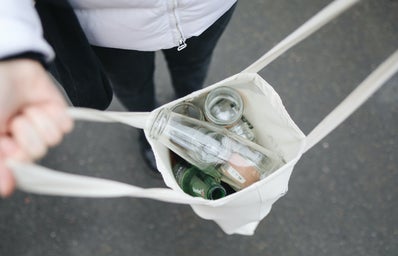With the world celebrating Earth Day on April 22, popular headlines and infographics will tout eco-friendly ways to live such as buy local, eat more plants, and recycle. While all these things help keep the Earth green and reduce the environmental impact of humans, recycling is one issue that has been drilled into many since childhood. The detriment is that recycling is not all that it seems.
It’s easy to use a plastic bag or container and alleviate some guilt with the thought, “Well, at least I’m recycling it”. However, this can create a dangerous cycle. If recycling is the cure all to plastic consumption, then what’s stopping someone from reducing their plastic use in the first place? I know that I am guilty of this too. Often times I’ll buy something with plastic packaging and reason that since I’m recycling it, it isn’t so bad. It can be hard to find plastic free items at the store, too. The truth is that we live in a plastic world, and navigating fact from fiction can be difficult! So how legit is recycling anyway? Does it help? Here are the facts.
According to an article written by National Geographic, there were about 8.3 billion tons of plastic in the world in 2018. Now, three years later, that number has likely increased greatly. Of this, it has been estimated that around nine percent of plastic has been recycled, leaving a whopping 91 percent still present in the world. Even more concerning is that plastics take hundreds of years to decompose; every piece of plastic produced still exists today. This plastic makes its way into oceans, piles up in landfills, and infiltrates ecosystems. So while recycling may seem like an easy way to be eco-friendly, it isn’t accomplishing much.
So then, what can we as a society do about this issue?

1. Reduce
Reduce, reuse, and reduce again. It can be so difficult to be zero waste in the world we live in today, but baby steps and living a low waste life imperfectly is better than nothing at all. Bring reusable bags with you to the store, shop local, try beeswax wraps for your food, and buy in bulk.
2. Reach out to political leaders
Make your voice heard and let your politicians know where you stand in regards to plastic and pollution. Support bills that would reduce and eliminate single use plastics and hold unsustainable companies accountable.
3. Educate
Let others know about the issue with recycling and dire plastic situation to create a wave of change.
Plastic is everywhere we look, but it’s never too late to make change and advocate for it, too! Avoid the trap of recycling and look to reduce instead. Take some time this Earth Day to plan out some small (or big) changes you hope to bring into 2021 to create a more sustainable future.


